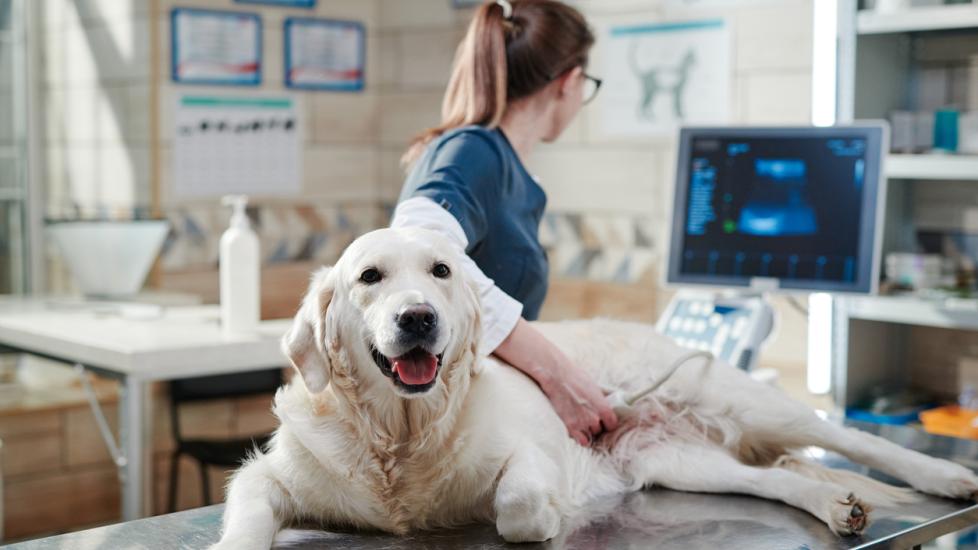Title: Navigating the Stormy Seas of Canine Gastrointestinal Health – A Guide to Stomach and Intestinal Ulcers
Introduction:
In the world of our four-legged companions, stomach and intestinal ulcers can be a hidden yet formidable adversary. These silent foes often lurk beneath the surface of your dog’s seemingly healthy gastrointestinal tract, causing discomfort that may go unnoticed until it escalates into something more severe. It is crucial for pet owners to recognize the signs, understand the causes, and know how to manage these insidious conditions before they wreak havoc on their beloved pooches’ well-being. This article aims to serve as a comprehensive guide to navigating the stormy seas of canine gastrointestinal health by shedding light on the intricacies of stomach and intestinal ulcers in dogs.
Understanding the Basics:
Stomach ulcers, also known as gastric ulcers, are sores that develop on the lining of a dog’s stomach, while intestinal ulcers form along the small or large intestines. Both types of ulcers share common symptoms but may differ in their origins and treatment approaches. The delicate balance between acid production, protective mucus secretion, and the integrity of the GI (Gastrointestinal) tract lining can be disrupted by various factors, leading to the development of ulcers.
Causes:
The multifaceted nature of stomach and intestinal ulcers means there are numerous potential triggers. Some of the most common include non-steroidal anti-inflammatory drugs (NSAIDs), chronic stress, infections, certain medications, and even some dietary components. Hormonal imbalances, particularly those associated with Cushing’s disease, can increase the risk of developing ulcers due to elevated cortisol levels. Additionally, certain breeds seem predisposed to these issues, including German Shepherds, Rottweilers, and Doberman Pinschers.
Signs and Symptoms:
Because dogs cannot vocalize the pain they feel internally, recognizing the subtle cues becomes essential. Common signs of stomach and intestinal ulcers include vomiting, diarrhea, loss of appetite, lethargy, blood in vomit or stool, and abdominal tenderness upon palpation. Your vigilance as an attentive pet parent could mean the difference between early intervention and a worsening condition.
Diagnosis and Treatment:
A combination of physical examination, blood tests, fecal analysis, X-rays, ultrasound, and endoscopy might be necessary to confirm the presence of ulcers and assess their severity. Once diagnosed, treatment typically involves a combination of prescription medication to reduce inflammation and control acidity, dietary modifications to provide relief, and lifestyle changes aimed at reducing stress and promoting overall digestive health. Proton pump inhibitors like omeprazole can help decrease stomach acid production, while antibiotics might be prescribed if bacterial overgrowth is detected. In severe cases, surgery might be considered to repair damaged tissue.
Prevention Strategies:
While prevention is not always guaranteed, taking proactive steps can significantly lower the chances of ulcer formation. Limit the use of NSAIDs when possible, ensuring that any required medications are given under veterinary guidance. Provide a calm environment for your dog, minimize stressors, and consider incorporating stress-reducing activities such as regular exercise and playtime. Feeding high-quality diets that support gut health and avoiding foods that may irritate the stomach lining can contribute to maintaining a robust gastrointestinal barrier. Regular check-ups with your veterinarian will allow for early detection of any underlying health issues that could potentially lead to ulcers.
Conclusion:
Caring for a dog’s stomach and intestinal health requires diligence, patience, and a deep understanding of their unique needs. By being aware of the risks, recognizing the signs, and implementing preventive measures, we can ensure that our furry friends enjoy good gastrointestinal health throughout their lives. Remember, every dog is different, so consulting with a professional who understands both you and your pup is key to creating a personalized care plan tailored to your specific situation. Let us work together to keep our pets happy, healthy, and free from the scourge of stomach and intestinal ulcers.
